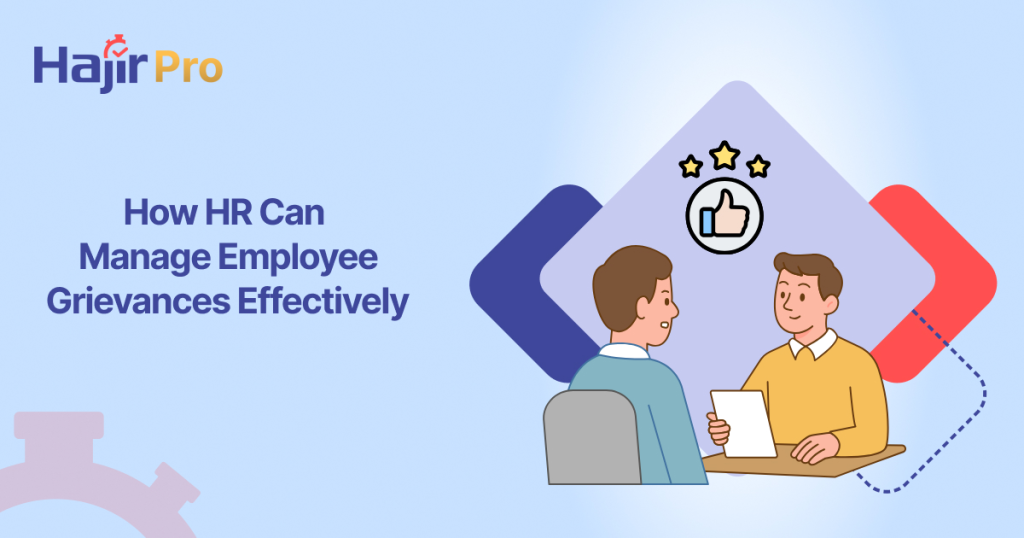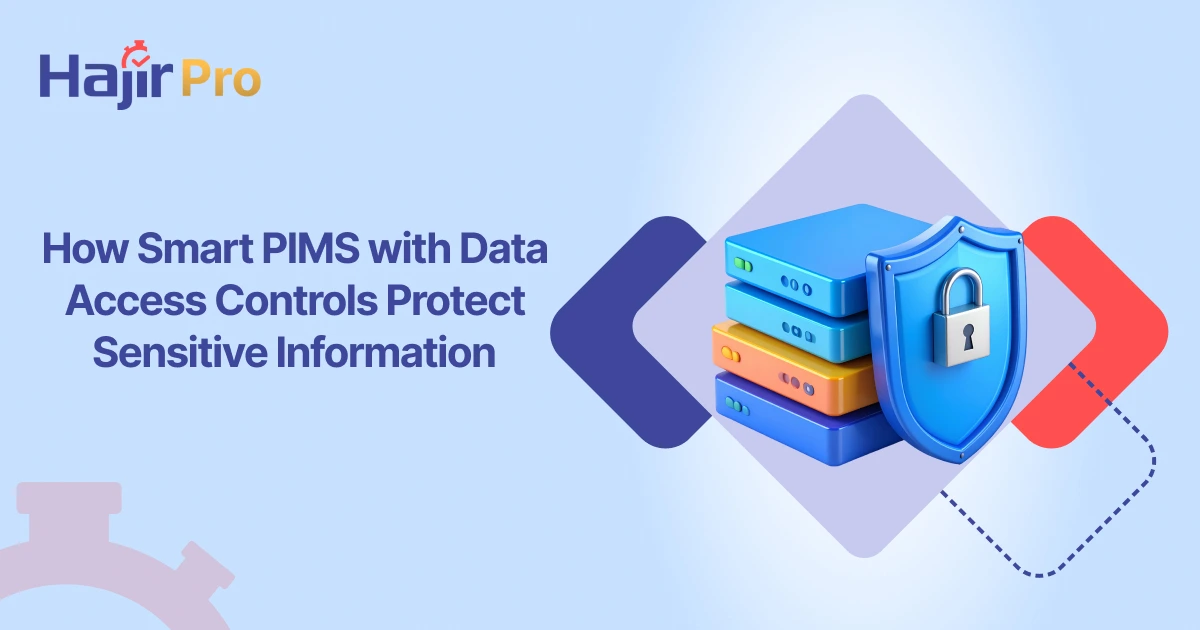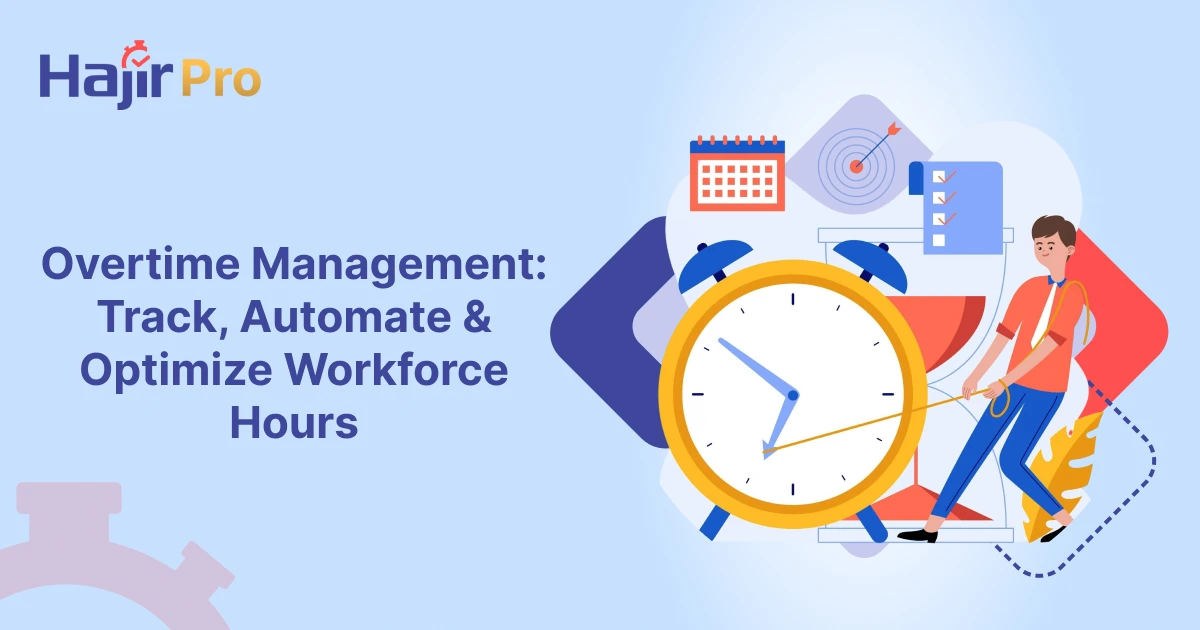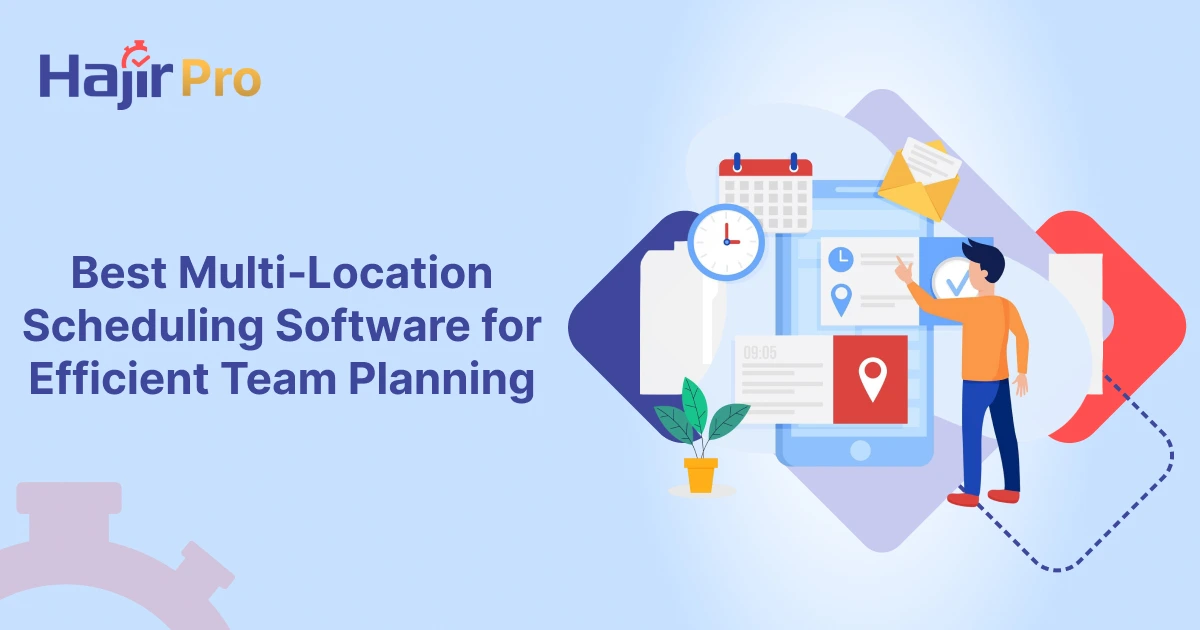How HR Can Manage Employee Grievances Effectively
Employee grievances refer to complaints, concern or dissatisfaction that employees raise towards their workplace, their management or working conditions. They may be caused by unfair treatment, poor communication, or disagreement of team members. It is important to deal with the grievances of the employees effectively since unresolved problems may demoralize employees and cause breaks in teamwork and productivity. Grievances also offer an opportunity to identify organizational gaps, enhance communication, and build trust between employees and management when handled transparently and fairly.
An orderly grievance-handling procedure would preserve harmony and solve conflicts in the future. The digital solutions, such as HajirHR, enable HR teams to simplify the process. The employees can easily submit and follow grievances and remain anonymous when they need it. The HR managers can use the insights to improve policies in the workplace and make the environment more transparent with the help of digital tools.

Types of Employee Grievances
There are numerous causes of dissatisfaction that may lead to employee grievances, and it is essential to understand them and find a solution to the problem. The identification of the nature of the grievance enables the HR to undertake specific measures to correct the cause and avoid further problems. The following are the most common employee grievances in workplaces:
1. Workplace Grievances
These grievances arise from issues related to the working conditions or physical environment. They can be unsafe working environments, poor tools or resources, heavy workload or awkward office arrangements. This may impact the morale of employees, their productivity, and even their safety. It is therefore crucial that the HR and the management deal with these problems as quickly as possible.
2. Policy or Management Grievances
Employees may feel dissatisfied with unclear company policies, inconsistent rule enforcement, or perceived unfair treatment by managers. The employees can feel undervalued or discriminated against when the policies are unclear or when the decisions made by the management appear to be biased. To avoid the occurrence of such issues, it is necessary to enforce policies unambiguously and to talk over them openly.
3. Compensation Grievances
Financial issues are one of the most sensitive in any working environment. Those complaints involve the disagreement on salary differences, the lateness of payments, unattended bonuses or benefits dissatisfaction. HR should conduct regular audits, maintain clear payroll systems, and communicate compensation structures transparently to address these grievances.
4. Interpersonal or Behavioral Grievances
Disputes with peers, misunderstandings with managers, or bullying and harassment belong to this category. If not managed, these problems can create a toxic work environment. The HR department ought to resort to the use of anti-harassment policies, open communications and conflict resolution training should be carried out.
5. Disciplinary Grievances
The reason why such complaints occur is because employees feel that they have been punished, demoted or terminated unjustly. It may harm the reputation of the organisation when it seems that the disciplinary action is unfair or unfair. HR has to make sure that such disciplinary course should comply with the set procedures and should be backed by any evidence.
Why Managing Employee Grievances Matters
Effectively managing grievances offers several benefits for the organization:
- Improves Morale: When the employees are listened to, they feel important and well-regarded.
- Reduces Conflicts: Minor problems are prevented before they get out of control.
- Increases Productivity: A positive work environment fosters focus, collaboration, and efficiency.
- Reduces Turnover: Satisfied employees will be more loyal and will hardly leave.
- Instills Confidence and Transparency: Standard procedures will boost confidence in the management.
Organizations should focus on grievance management because by doing so, they are able to establish a good and inclusive culture in which the employees feel secure to express their concerns.
Steps to Handle Employee Grievances
A systematic strategy would provide a fair way of dealing with grievances. HR professionals are expected to adhere to the following major steps:
- Acknowledge the Grievance: Immediately respond to the complaint and assure the employee that his or her concern is being addressed. Record the information effectively.
- Investigate the Issue: Gather facts and evidence from all parties involved keeping them confidential and without bias.
- Analyze and Evaluate: Determine the actual cause of the complaint. Whether it is a policy-related issue, a personal issue or a miscommunication issue.
- Decide on a Resolution: Select the right action based on the policies of the company and make it clear to the employee.
- Implement and Follow Up: Implement the solution immediately and follow up to ensure that the problem has been solved and satisfaction is met.
This approach fosters trust and helps build long-term employee relationships.
How HajirHR Helps Manage Employee Grievances
The HajirHR Software offers an online service that renders the management of employee grievances straightforward and transparent. Workers are able to make complaints without any paperwork and all the grievances are logged in an orderly manner so that none of the issues are left out.
The system allows anonymous reporting which promotes open communication as well as protecting the privacy of employees. HajirHR allows the HR to resolve grievances in an excellent manner by making the process simplified so that records are well organised and anonymity is maintained so as to maintain trust and transparency at the workplace.
Preventing Employee Grievances
When it comes to the issue of employee grievances, prevention is as important as the resolution. To reduce workplace dissatisfaction, HR can act in advance on the possible problems and prevent conflicts before they become out of proportions.Possible prevention measures are:
- Enforcing clear and consistent communication regarding policies, expectations and procedures.
- Treating all employees fairly and equally.
- Training managers on conflict management, leadership and empathy.
- Holding frequent surveys of employees and feedback to determine issues early.
- Rewarding employee efforts in a fair and consistent manner.
Taking proactive steps helps build trust and creates a cooperative work environment, reducing the likelihood of grievances.
Creating a Workplace Where Every Voice Matters
Managing employee grievances is not merely about open-ended conflict resolution but also about developing a culture of fairness, respect and trust. Employees are confident and inspired when HR makes sure that all grievances are addressed in a transparent and empathetic manner. With a supporting technology such as HajirHR, grievances can be made in a simple way, stored in a systematically organized manner, and even be reported anonymously, which means that all voices will be considered.
Companies can avoid future challenges and promote further development by relying on the lessons of these processes to better policies. By learning from these grievances, companies can improve their policies and create a more just work environment. This fosters a sense of empowerment among employees and boosts overall workplace performance.



